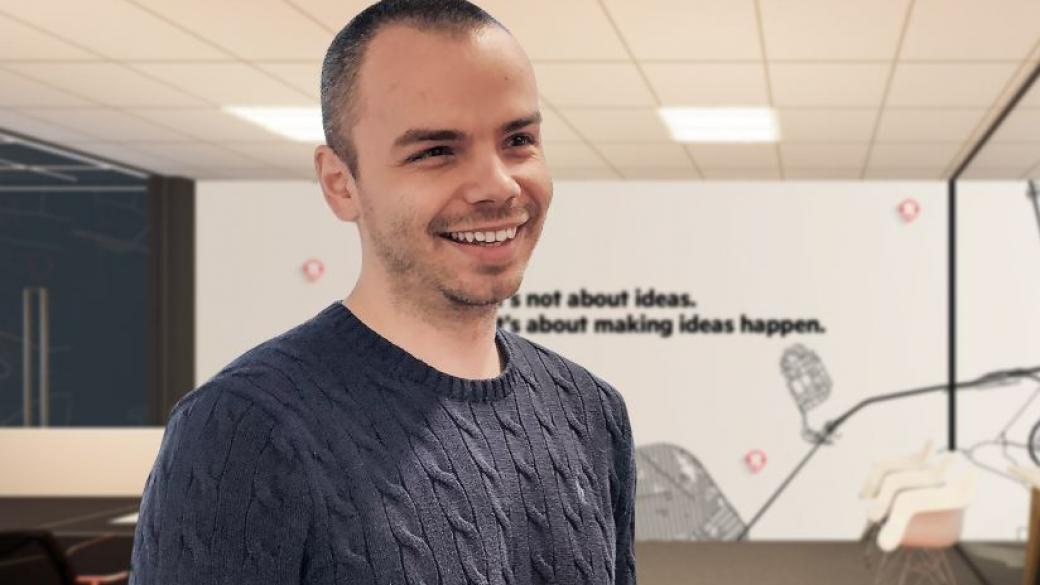The Bulgarian Application Civi Solves Urban Problems in California
Novanor received USD 10 million from an American investment fund to develop a platform for sending reports from citizens to institutions

The Bulgarian software company Novanor received USD 10 million from an American investment fund to develop an online platform and mobile application for reports from citizens to institutions in the US called Civi. By autumn, Civi must have 1 million users, and by the end of the year, it will also be introduced to the US market.
In 2014, Martin Dimitrov and Lilyana Deyanova were studying in London. Lilyana, also known as the singer LiLana, completed her studies in European Political Economy at the London School of Economics, and Martin - Internet Technologies at Southampton Solent University. "It was there where we decided that we would return to Bulgaria to create products that will change the environment in which we live. Civi's aim is to show people that it is easy to exercise their rights, to cope with everyday urban problems and to feel involved in their solution. We believe that Civi is the best and most effective way to report a problem to the institutions," Martin says.
The company attracted its first investment from the Bulgarian start-up incubator Eleven amounting to BGN 50,000 for an 8% share of the company. In 2016, it opened an office in Michigan, USA. Later, it succeeded in buying out its share and continued on its own.
By 2018, the Novanor's team has been growing, including its office in Sofia, where more than 20 people work. The expansion is also related to the need of the company to meet the requirements of the new investor with whose help Civi will enter the US market. By the end of the year, the company will also open an office in California with the aim of facilitating citizens in their communication with the authorities. "The investment includes development at several stages with specific targets. We know it will be difficult, but we are very motivated because we see that there really are solutions to some of the problems. The first step towards the big success is to fight for each user, and we are obsessed with the desire to leave people satisfied when using the platform," Martin explains.
In Bulgaria, there are several applications for citizens to report to municipal authorities, but Civi is the first to be introduced to the international market. It was launched in the autumn of 2017 and was positioned as "your municipality online". Through it, one can report a problem concerning any city or other locality, no matter which municipality it belongs to. The reports reach the respective institution in line with the official procedure, which is taken care of by the team behind the application.
"Unlike other similar platforms, Civi does not work directly with municipalities. The platform and the lawyers in the team use the legal framework and the internal regulations of each municipality in order for the reports to be able to reach each institution in Bulgaria in the best possible way. According to the Administrative Procedure Code, each institution has to come up with a "decision" on the specific problem within a certain timeframe. The contact centre behind Civi, as well as the lawyers who are part of the platform, monitor the responsibility of the respective institution to the person who reported the problem. Through the application, the lack of response from institutions or its delay can lead to forwarding the problem to higher institutions," Martin says. For the several months since the introduction of the Civi platform, there have been several hundred resolved problems through the activity of the citizens.
Civi is part of the new wave of "civil digitalisation" that is not directly linked to software solutions developed by institutions. The application is free and can be used with Android and iOS, it does not require technical support or additional administrative capacity. The platform is entirely cloud based and uses technologies such as React, React Native and Node JS.
According to Martin, the most appropriate model for digitalisation of the administration is for it to happen from the outside to the inside. He believes that platforms like theirs and the like should create tools and only give a technical possibility for communication with municipalities. The company also plans to develop cloud-based tools that use Machine Learning for data analysis. These tools will be available to government institutions in the form of SaaS (Software as a Service) and PaaS (Platform as a Service) intended for the B2G (Business to Government) sector.
"Some municipalities have their own applications for reporting problems, but sometimes employees do not have the knowledge and the desire to attract many users. In addition, the reporting process is often difficult. The state cannot develop very expensive systems on technical assignments written by people who do not understand the needs of institutions and citizens. We believe that successful digitalization depends on young developers and younger Bulgarian companies that offer quality solutions based on the software as a service and that are hundreds of times cheaper than the systems they order through big public procurements," the entrepreneur says. He dreams for the connection between municipalities and citizens to become even stronger, not only in Bulgaria. Soon in California, and then - everywhere where there are active citizens.


